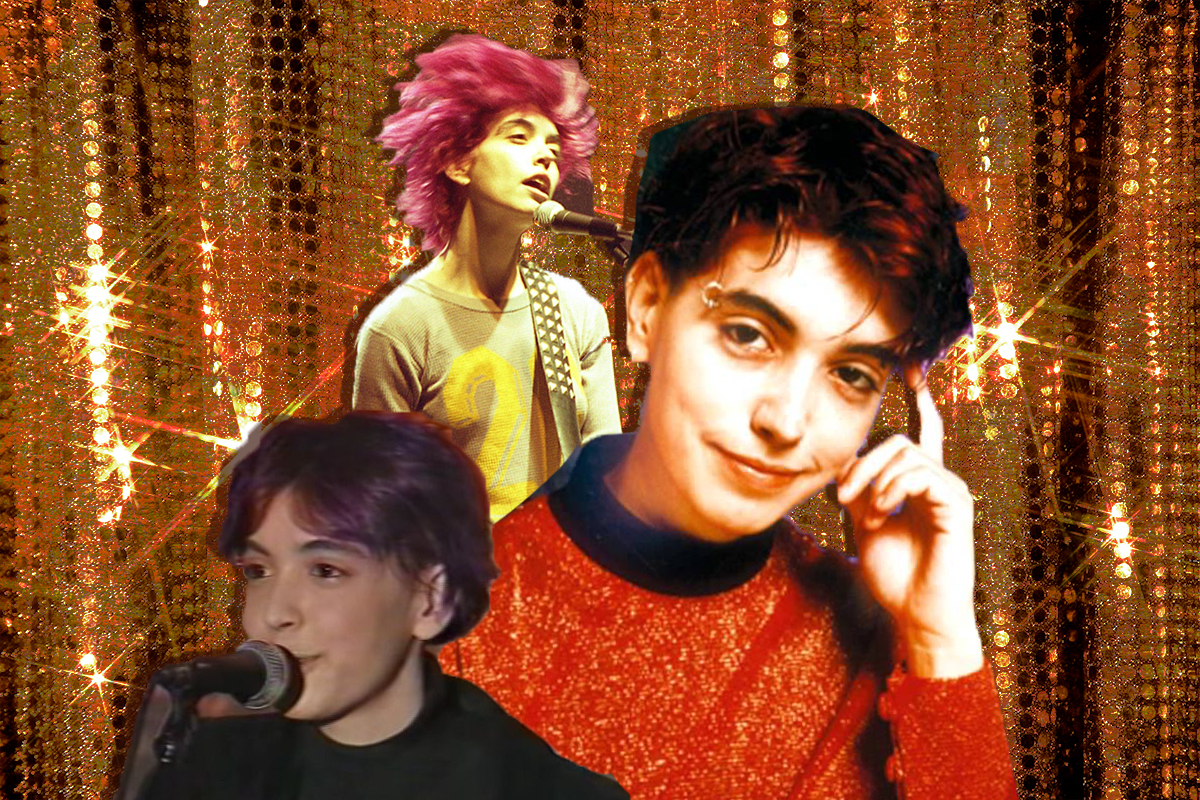Oh, ‘90s nostalgia. Has any millennial born early enough to experience the decade, or its lingering aftershocks, not felt it? Mixtapes, the early internet, Blockbuster, Tamagotchi, those bracelets you would slap on your wrist like that … wasn’t … a weird way to self-inflict pain. The ‘90s were fun. Or maybe that was just youth? Anyway.
More than anything, ‘90s music was fun. What I miss most about my teenage years (which did not take place during the ‘90s, alas) is the sound of ‘90s rock. The early days of Green Day, Blink-182, and Wizard; the rise of Nirvana, The Smashing Pumpkins, and Rage Against The Machine; Hole, Liz Phair, Alanis Morrisette, No Doubt, The Cranberries. Rock music of the decade kicked and screamed and made it fun to be angry. It made sulking into an aesthetic, and I drank the Kool-Aid right up.
But I was also a kid in a small country that looked and felt different from what these bands were singing about. I was far from understanding the intricacies of U.S. and U.K. society that lay at the heart of ‘90s rock, and all I wanted was music that could be truly mine, no reservations, no barriers. I was queer, I was Jewish, I was angry, I was sad, I spoke Hebrew. I wanted someone who kicked and screamed and sulked but who also talked about things I could understand, that I experienced, to look up to — and then, I found her. Inbal Perlmuter.
I like to describe Inbal Perlmuter as a female, Israeli Kurt Cobain, just for comparison. In reality, she was an icon of her own making. Born in 1971, Perlmuter’s career began with the formation of Ha’Mechashefot (The Witches), a trio of girls led by Perlmuter on lead vocals and guitar. Their name was derived from Perlmuter’s fascination with the mystic. Their lyrics were poetically simple and never shied away from the taboo — Inbal would sing about female pleasure, witchery, the politics of the day, mental struggles, drug addiction, her friendship with her dog. When she wrote in Hebrew, her use of the language was one that was new to me: It was daring and modern, but she didn’t try to imitate English structure and grammar to sound less Israeli. Beautiful archaic phrases were woven into her writing, and when she wrote and sang in English, her Israeli accent made the foreign language mine.
In “Pachad Amity” (“A Real Fear”), Ha’Mechashefot sang about lesbian longing and fear of homophobia in honor of Perlmuter’s queer sister. When they covered the Israeli classic “Kesem Al Yam Kineret” (“Magic Upon the Sea of Galilee”), they turned a peaceful love song to Eretz Israel into a kicking tune of lesbian desire. They were the first girl group to make rock in Israel — and queer rock, at that; they screamed at any institution that had power over them. But Perlmuter never saw that as their defining attribute. What mattered was making music.
Inbal’s demeanor was always nonchalant and charming, the kind of unbothered yet not uncaring personality that true rock stars possess. Her sound verged on the experimental, but not enough to push away a mainstream crowd. In interviews, she would smile and give witty answers that made the crowd laugh and left the baffled interviewers alone in their shame. As the kind of person who never grew out of their rebellious phase, I’m still very attached to Inbal Perlmuter — she taught me that rebellious phase.
Though she lived a short life until her death in a car accident in 1997 at the age of 26, Perlmuter left a vast musical legacy behind her, with collaborations that span the biggest names in Israeli rock, from Korin Allal and Ram Orion to the legendary Nick Cave. I’m here to give you a succinct beginner’s guide to her music, so if you, like me, are a hardcore ‘90s nostalgic, you can dive into Perlmuter’s soundscape of Jewish witchery, queer female desire, and anger.
“Ha’Mechashefot” (“The Witches”)
From their debut self-titled album comes Ha’Mechashefot’s self-titled opening track. A tale of a mystic night of debauchery, of female pleasure and sexuality masked in idioms of witchery, “Ha’Mechashefot” is a hell of an opening statement. A song that brought forth a defining sound of Israeli ‘90s rock, Ha’Mechashefot’s debut was a celebration of unabashed female rock.
“Zmanim Moozarim” (“Strange Times”)
In this title track from their sophomore album, Ha’Mechashefot turn darker and messier to sing about the strange, emotional times they are living through. The album as a whole has a more minor sound, a few more tracks in English, irregular time signatures, and many more lyrics that speak to the distressed, the lost, and the disillusioned.
“Shivers” with Nick Cave (The Birthday Party cover)
In this cover of the macabre love song by Nick Cave’s memorable band The Birthday Party, Perlmuter’s Israeli accent and recognizable voice mingles with the famous deep, irreverent backing vocals of Cave, who, on a visit to Israel, agreed to join Ha’Mechashefot in the recording studio. It’s one of my favorite covers of all time, turning Cave’s famous gloominess into beautiful longing, and appears on Ha’Mechashefot’s covers album.
“Kshe Ze Amok” (“When It’s Deep”) with Korin Allal
Korin Allal is one of those names that every queer woman in Israel knows, similarly to Inbal Perlmuter. Though in their aching and gorgeous duet they sing about a man, it was clear to everyone from the beginning that this song would be a queer classic. There is something so inherently queer about the tender melody of craving someone’s presence.
“Im Ze Nigmar Ze Chaval” (“If It’s Over That’s Too Bad”)
When writing “Im Ze Nigmar Ze Chaval,” a letter to important people in her life asking them not to give up on her — or a goodbye letter, depending on how you read the lyrics — it seems like Perlmuter’s witchcraft was at play. The song, recorded as part of her unfinished solo album before her death, was released posthumously, along with other unfinished recordings that were polished and added to by friends and former band members. They make up Perlmuter’s only solo album, titled “Haklatot Achronot” (“Last Recordings”). Its arrangement and Inbal’s clear and unusually mirthful, quiet voice make it a truly special listening experience.
If you go through this list and the rest of Perlmuter’s discography, and you still haven’t had enough, dive into this deep-cut of an album that was only recently uploaded to YouTube by Ram Orion, who worked on the album with Perlmuter in London, after being unreleased for decades.



